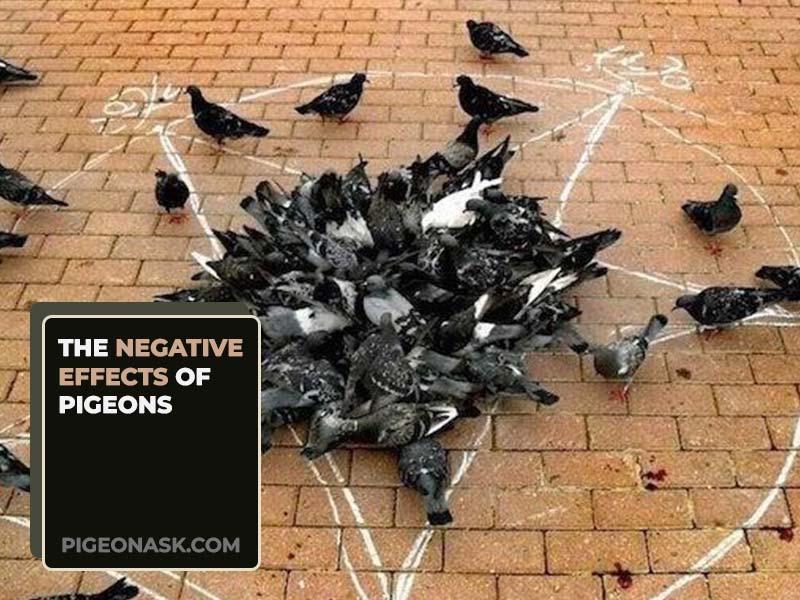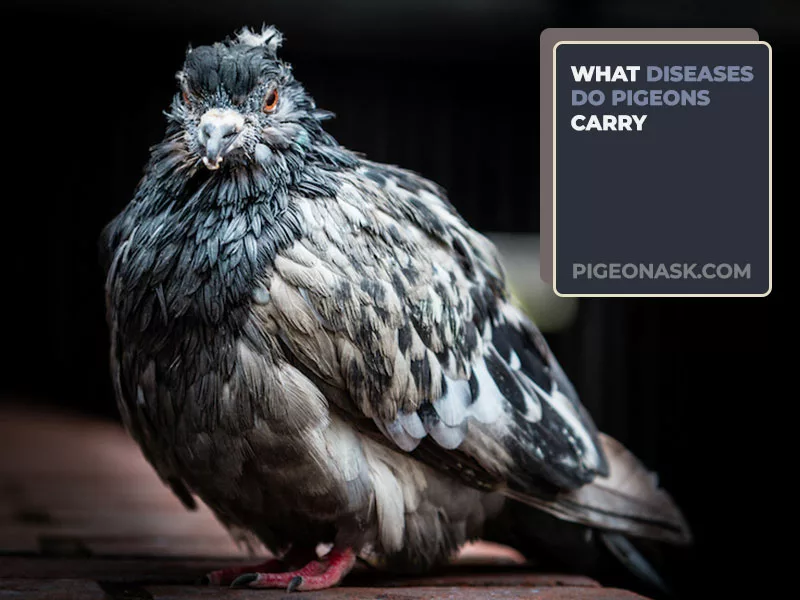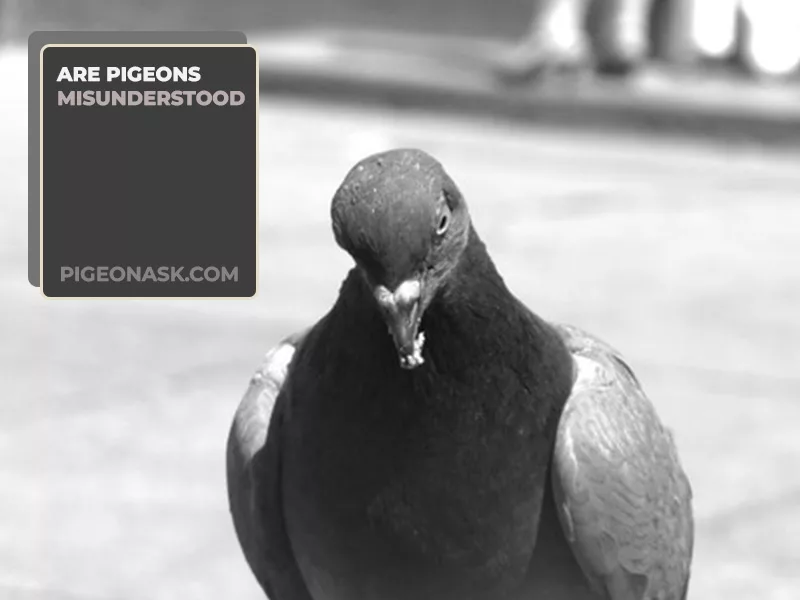Why Are Pigeons Bad?
Oftentimes, when we are discussing the issues concerning the world and the zeitgeist, we often ask ourselves the age-old question, why are pigeons bad?
Arguably, pigeons are ‘Bad’ for a number of serious reasons. They are known to carry more diseases than rats (this alone), and their acidic droppings decimate stone structures, burn gardens, and nibble away at gutters and other metal infrastructures.
A number of major cities around the world have had and continue to have major pigeon-related issues. It is safe to say pigeons are not known favorably to municipal officials or urban residents.
However, there is a vocal camp of pro-pigeon warriors. Members of this camp sincerely believe that pigeons are misunderstood in our societies and argue that it is mostly bad PR.
Read more about pigeon blogs:
The Negative Effects of Pigeons
Going through the vast archives of the internet, it is impossible to avoid all the research, guidelines, think pieces, and investigative journalism that delve into the negative effects of these ‘rats of the sky’.

Below is a list of important contributors to their infamy.
Attack of the Insects
Pigeon feces and nesting supplies are a natural habitat for several species of invasive insects, such as clothes moths, carpet beetles, flies, mealworm beetles, and worst of all mites.
While the others may only ruin your day momentarily or only as long as they are in sight, mites are a nightmare.
They will cause us humans a world of unnecessary pain and annoyance in the form of itches and social discrimination.
Dirty, dirty Birds
Pigeons are widely known to be one of the most unhygienic of all birds. Their bodies carry many diseases, such as cryptococcosis, histoplasmosis, and psittacosis, that spread through feathers and droppings. There have been 176 documented transmissions of illness from feral pigeons to humans (Weber, 1979).
Other than causing severe health complications to people, their inclination to drop waste bombs all over the cities is a major issue for municipal and park officials. They have taken over small urban areas where people are afraid to walk outside on a sunny day or even park their cars.
It is quite unsightly when their droppings paint whole walking lanes and park benches.
Resource Drain
Considering how quickly they multiply, home or business owners are rightfully concerned about all the money and time they have to invest in dealing with pigeon nests. Pigeon nests often damage air conditioner units on the roof and are also unsightly to look at.
Furthermore, private property owners and city officials have to spend a significant amount of money to clean up the buildup of pigeon droppings all around the year.
In 1986, the Historic Buildings and Monuments Commission estimated that cleaning monuments would cost them £14,000 and £91,000 per year, respectively. That cost is much greater as of now.
Damages
Pigeon feces have been tested to show the presence of uric acid. Studies by Bassi and Chiantante (1976) revealed that pigeon droppings are not what causes masonry corrosion but rather the fungi that reside on it.
The fungi’s mycelium enters the stone and distributes naturally occurring acids that are potent enough to dissolve it. The structure of the stone becomes more porous as a result of this process, making water penetration quicker.
Unless taken care of, pigeon droppings have been proven to corrode metal and other infrastructural materials. Pigeon droppings have been observed to degrade monuments in London’s Trafalgar Square, and the issue has been the subject of numerous reports and academic articles.
There have also been instances of pigeon litter clogging up the drainage. This, in turn, led to roof damage and the buildup of water.
What Diseases Do Pigeons Carry?
It’s stated by Dr. Chennamchetty −”Pigeon droppings and AC ducts have become a dangerous combination in urban areas. People don’t open windows, but airborne particles of pigeon droppings are a major causative factor of Hypersensitive Pneumonitis (HP). And I see one case every fortnight.”

This statement was given by a lung specialist, and it clearly highlights the severity of the harm pigeons can have on us human beings.
Several diseases can be contracted by inhaling dust or liquid droplets contaminated by pigeon droppings. As such, doctors generally advise people with weak immune systems to stay away from such environments.
Other than the ones mentioned above, pigeons have also been known to spread a number of diseases, for example, asthma, bronchitis, histoplasmosis, encephalitis, salmonella, meningitis, toxoplasmosis, and many more.
Are Pigeons Misunderstood?
As mentioned before, many people often sympathize with pigeons and believe that the hatred is a result of communal ignorance.
Sociologist Colin Jerolmack states that our hatred for pigeons is only a few decades old in contrast to a thousand years of coexistence. He believes something went wrong.

The Times had previously reported that a New York City health official linked a couple of deaths to diseases generally known to be carried by pigeons.
Jerelomack claims that upon further investigation, it was established that both the New York Department of Health and the Centers for Disease Control and Prevention (CDC) could not confirm a direct causality between casual interactions with pigeons, which resulted in death or even illnesses.
Epidemiologists at the CDC have told him that people, in general, do not interact with pigeons in a way that would cause illnesses.
Inhaling the dust from cleaning pigeon feces may cause diseases, as stated on the New York City Department of Health website.
Even though the risk of such pigeon-related disease is rare, they mention that if one takes the proper precaution while cleaning up droppings, it should be difficult to get sick from it.
Final Words
Overall, after much research regarding the health implications of pigeons on human beings, it can be said that pigeons are capable of causing serious harm.
Pigeons may seem like a nuisance, but the fact of the matter is that they are an important part of our ecosystem. They play a vital role in controlling the population of insects and other pests.
While it’s important to take precautions against diseases carried by pigeons, we should not overlook their positive contributions to our society.
Did this article tickle your intellectual needs? If yes, then go visit our socials for more. If not, then go visit our Facebook, Twitter, and Pinterest to satisfy your thirst for answers. Please share this article if you enjoyed reading it.
Article References:
- nyc.gov/site/doh/health/health-topics/pigeon.page
- Bbc.com/news/health-46964702
- Researchgate.net/publication/314245895_Effects_of_acid_pigeon_excreta_on_building_conservation
- Audubon.org/news/the-origins-our-misguided-hatred-pigeons
- Thehindu.com/sci-tech/health/The-pigeon-paradox-Feeding-them-could-be-bad-for-your-lungs/article14621979.ece
- Timesofindia.indiatimes.com/city/indore/these-intrusive-pigeons-are-bad-news-for-your-health/articleshow/61763441.cms
- Buildingconservation.com/articles/birddamage/birddamage.htm
Image Credits:
- Dailyhaha.com/_pics/pigeons7209.htm
- flickr.com/photos/ (By Barneymoss)
- Deviantart.com/ (By John2lemon)
